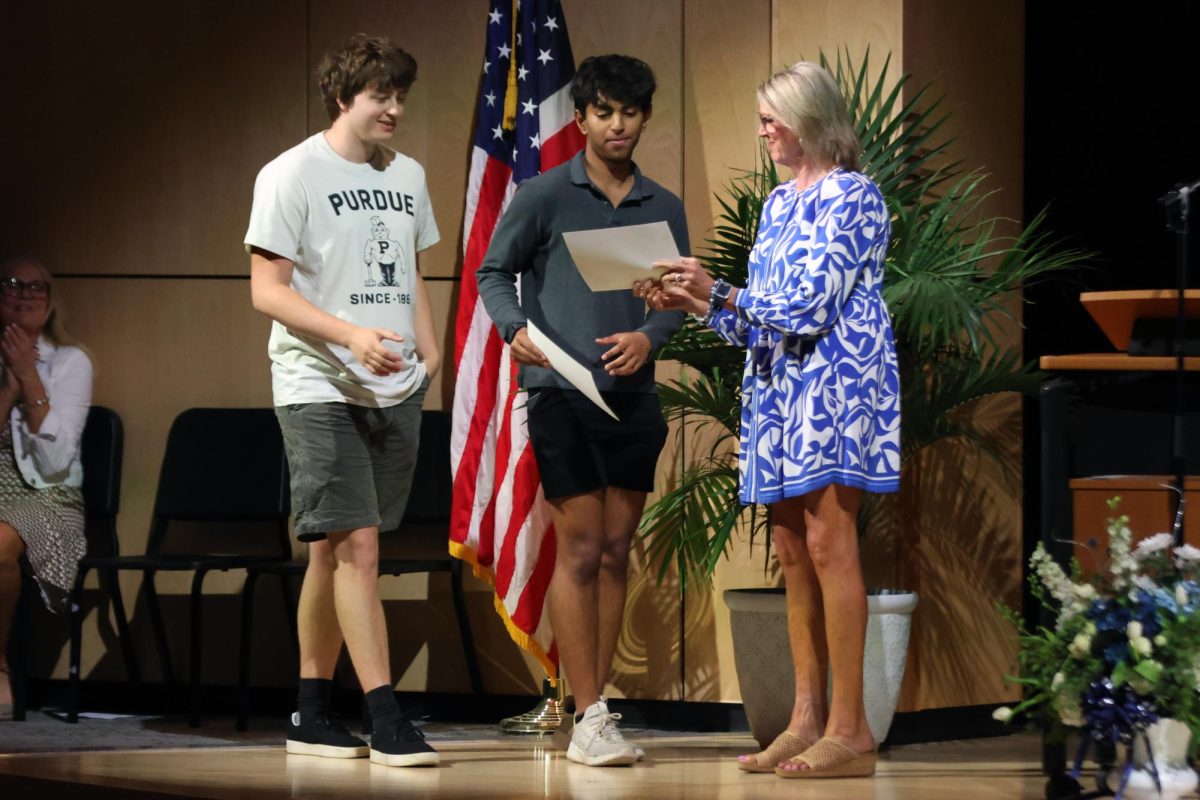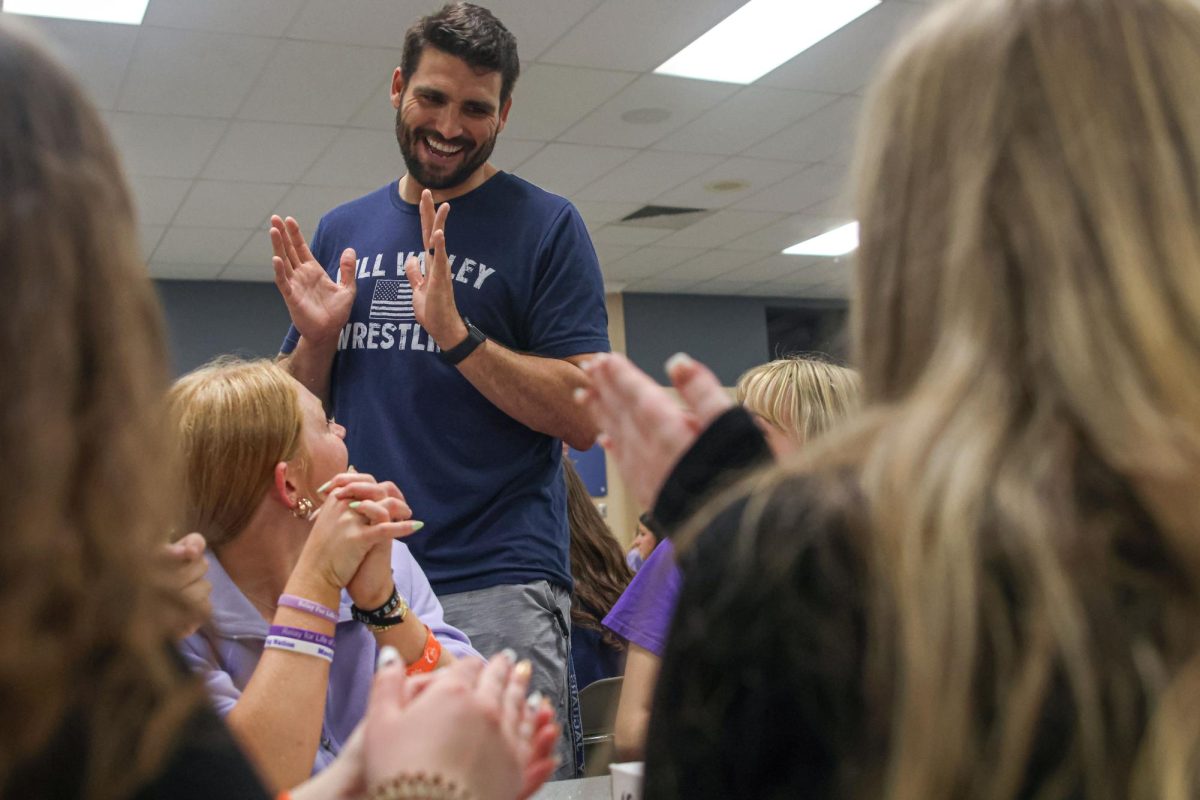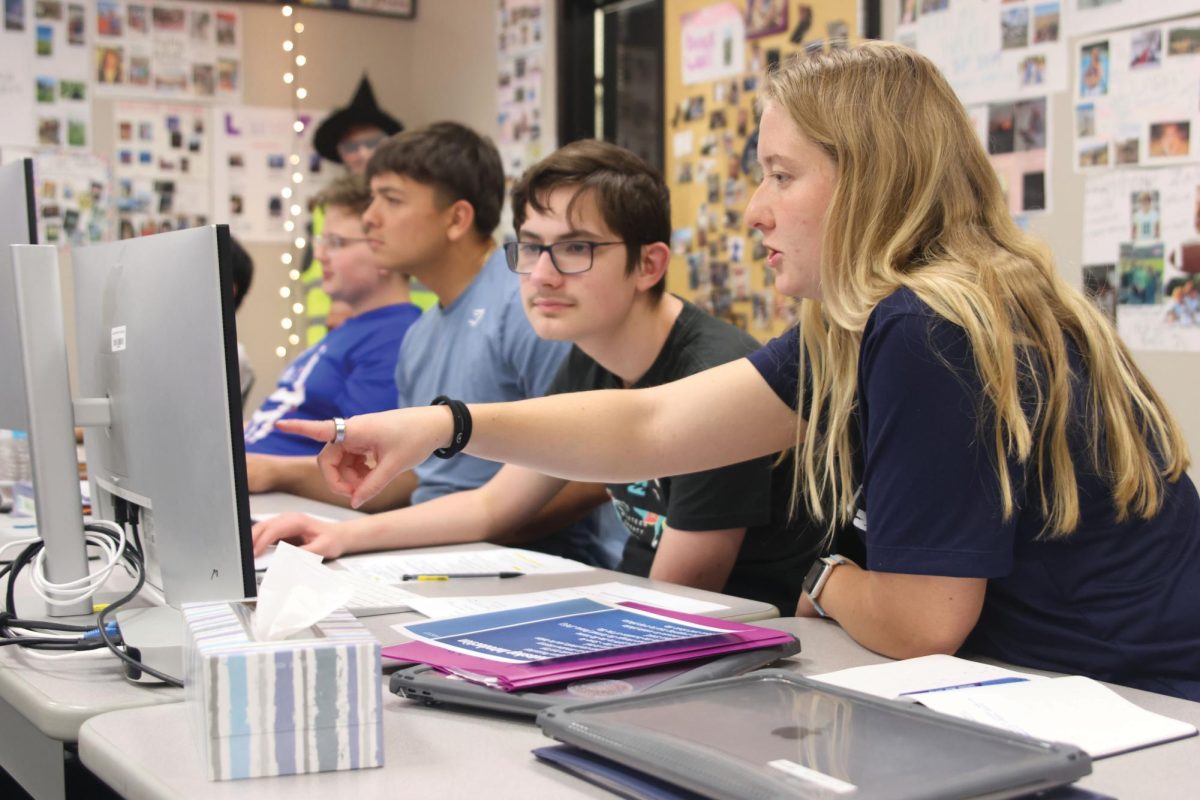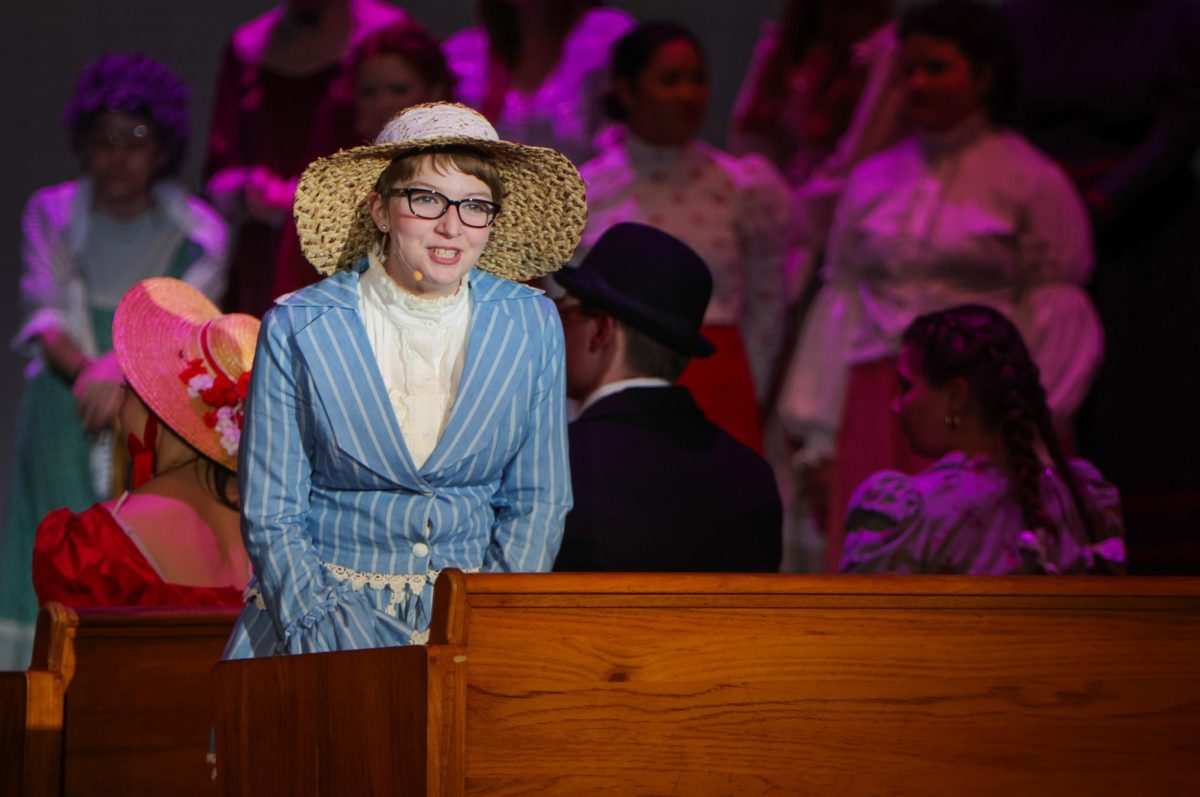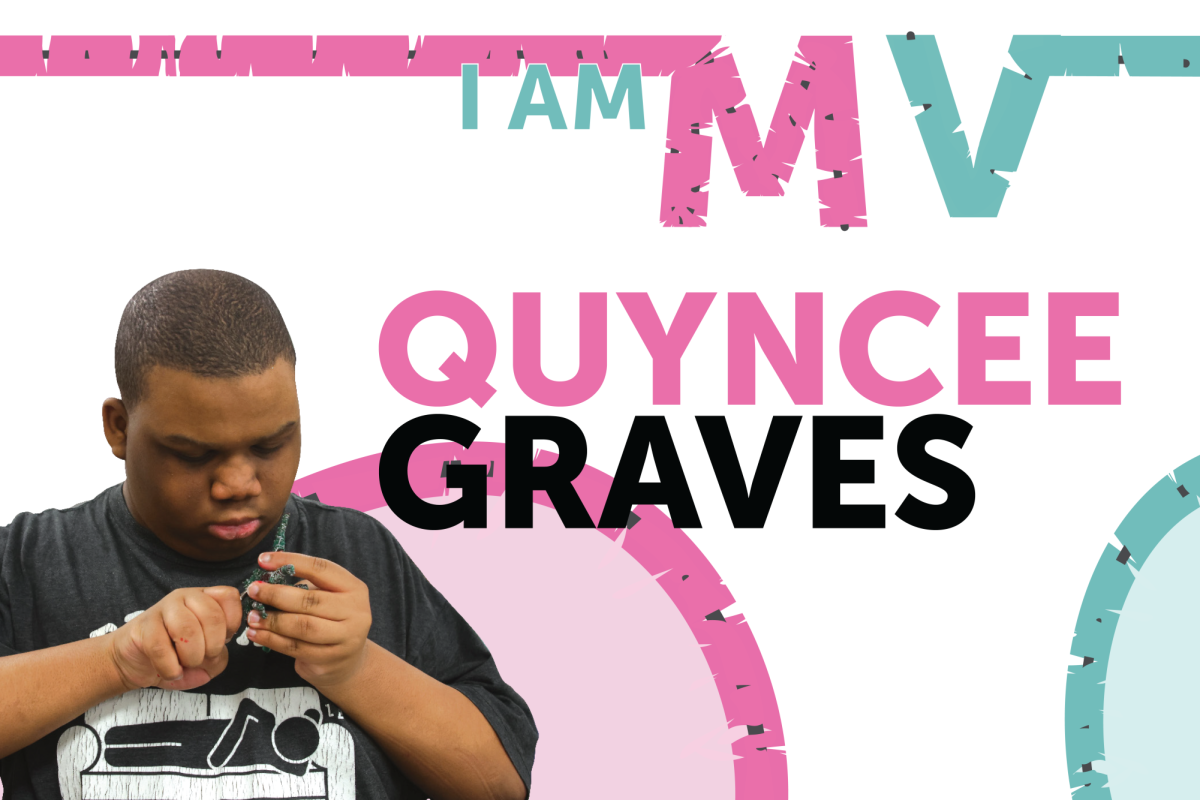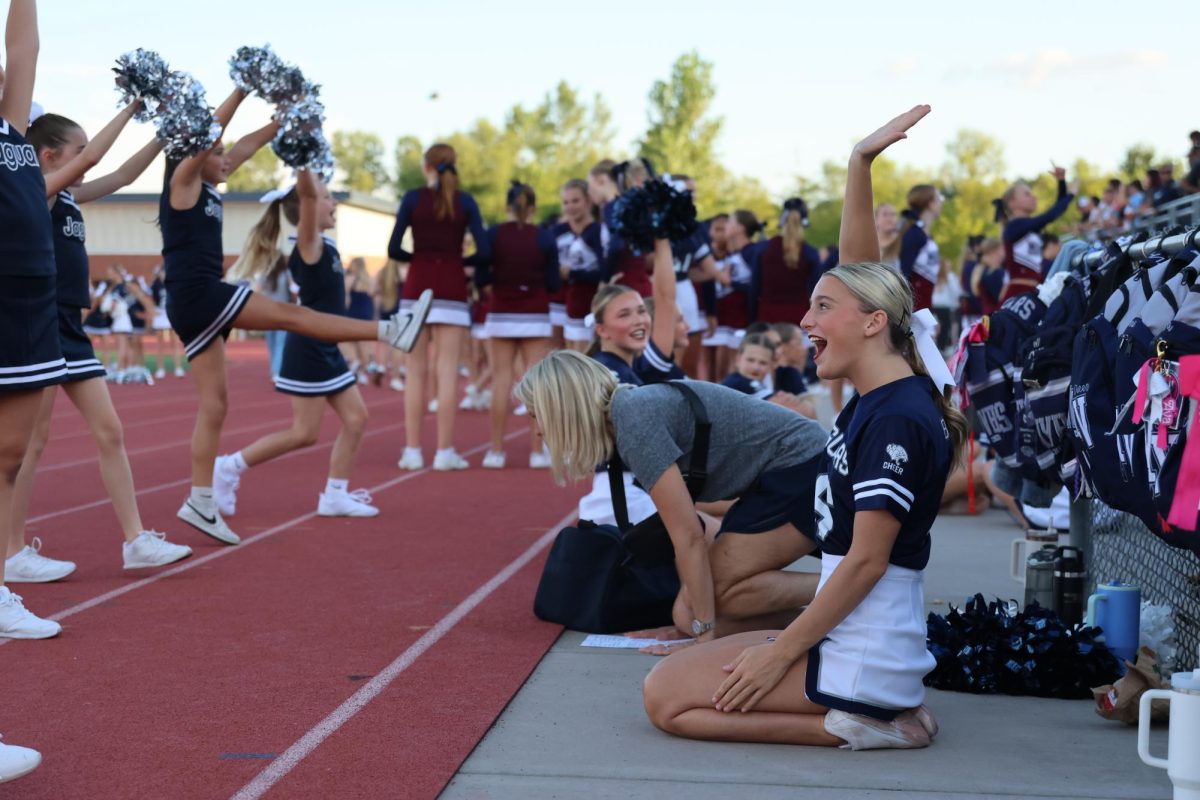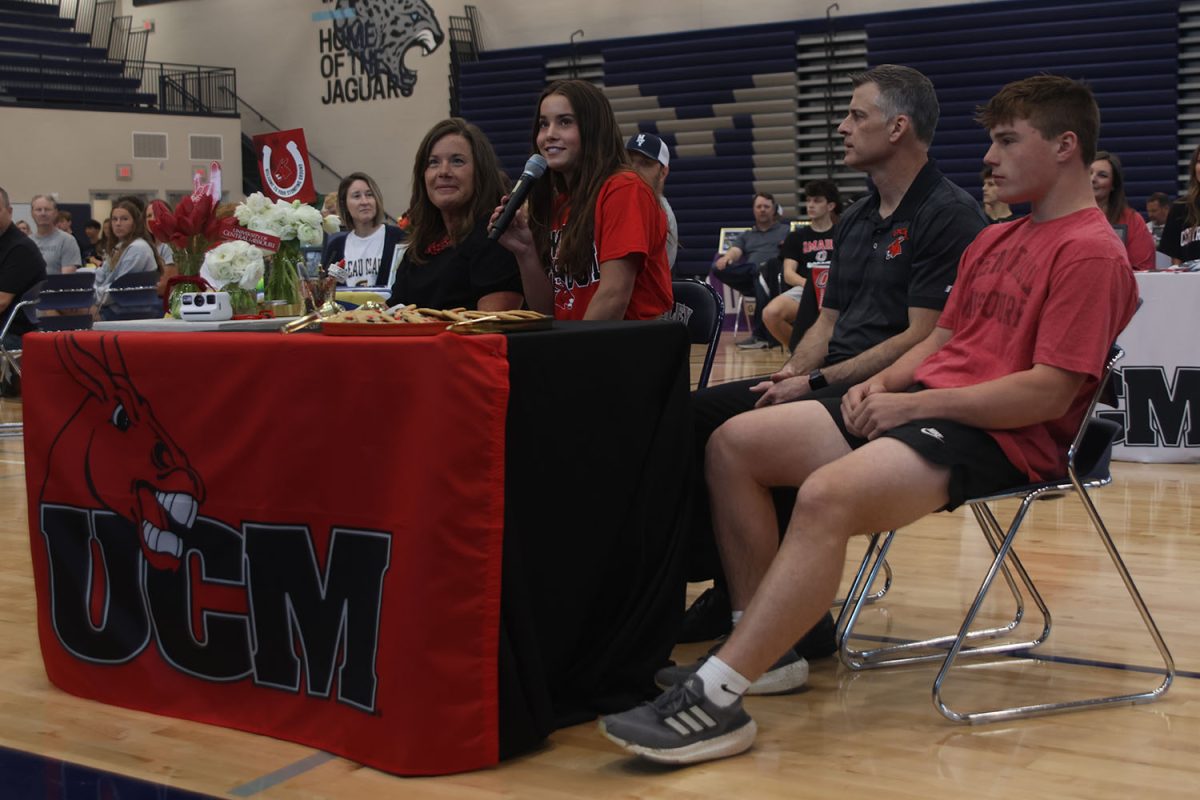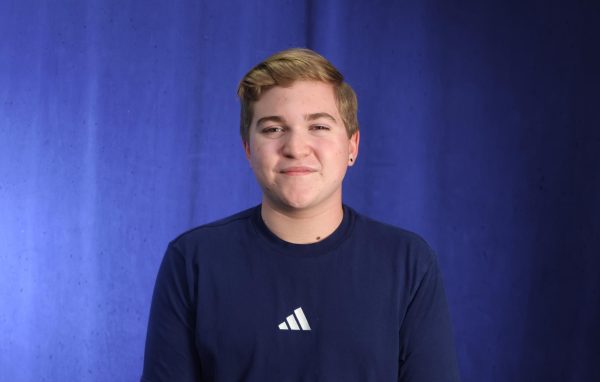Postponing Refugee Support
Since the Trump administration has made its way back into office, there have been changes not only to the country but also to the school. The club, Youth for Refugees has been the one taking the brunt of these changes at school. They have faced many struggles with keeping the club going after an executive order 14163 froze funding for groups working to help refugees.
Club sponsor Jeffery Wieland has concerns about how the executive order will continue to affect the club.
“The biggest effect on [Youth for Refugees] has been President Trump’s executive orders not allowing refugees to come to the United States, and he’s cut funding provide that,” Wieland said. “And so we have to suspend our project, our house to home project, in the middle of it. So we have a room full of furniture and items to help a refugee family, [but] Trump’s administration simply won’t allow us.”
House to Home, an annual project where the club furnishes a home for an incoming refugee family, was taken away due to an executive order that defunds the program. Co-president junior Will Schieber has plans for what the club will be doing moving forward, as their biggest project came to a sudden halt.
“Not having [house to home] anymore, we need something, or several smaller events, to fill that. And that’s something we were looking at this year,” Schieber said. “Kansas City International Academy is a school we partner with [and] we do a volunteer thing with them in October, they host a trunk or treat, and we bring a car and a few people, and we participate in that. So we’ve been looking with them, seeing if they have a lot of other volunteer opportunities.”
As a result of these difficulties, junior Barron Fox foresees difficulty with the club moving forward after this major setback.
“I wouldn’t be surprised if the club had to entirely shut down as more things come out,” Fox said, “But the club can only take an activism route as of right now because of refugees not being able to be openly supported under Trump’s administration.”
While the future seems uncertain for Fox, Schieber has a solid idea for how the club will change and evolve under these federal pressures.
“The structure [of the club] will remain the same. We will have our meetings, do a bit of education about refugees and kind of everything that’s going on in the world,” Schieber said. “That’s something we’d like to do is talk about is current crises that are causing refugees to move to the United States, but especially with this policy with the executive orders we’ve talked about how that affects us and just kind of the state of refugees in the United States, and people who want to come to the United States right now.”
While there is a plan for the future, Fox still feels this executive order is awful and feels it has defeated the purpose of the club.“The whole point of joining this club was to make sure that you can make a difference in your society and try to help out something that you feel is like out of your control in a way, and try to gain control of that, such as refugees and the fact that now we can’t even get an outreach because of the President not supporting something is awful,” Fox said.
Schieber shares similar sentiments about the issue and expressed frustration with his inability to do anything about it.
“I think it’s such a positive impact. It’s something I don’t see in a lot of other clubs or extracurriculars here, is that you can make a clear, direct positive impact on your community, on people who live 20 minutes from you,” Schieber said, “And it’s just really annoys me that I have missed out on doing it, but also just that we can’t do it for the foreseeable future. I don’t like that we’ve lost this really beneficial thing.”
While Wieland shares the disappointment for this obstacle, he also has the sentiment that America itself is straying from what it once was.
“I’m just disappointed, because I would like to think that we’re better than this as a country and American people, we wouldn’t necessarily tolerate this kind of thing, because these are families who are coming to America and that’s how my family came to America, and I feel like we should give that back,” Wieland said. “We should pay that forward, and we have kids who are willing to put their partial effort into that and to see that undermined for reasons I can’t fully understand.”
Limiting LGBTQ+ Expression
For students who are a part of the LGBTQ+ community, the new administrative orders could soon affect how they’re treated in the classroom. One of President Trump’s recent administrative orders, “Ending Racial Indoctrination in K-12 Schooling,” specifically outlines how public school staff are expected to respond to transgender students.
This executive order prohibits “‘Social transition…’ the process of adopting a ‘gender identity’ or ‘gender marker’ that differs from a person’s sex.” If adapted into K-12 public school systems, teachers wouldn’t be allowed to call their students anything other than what’s on their birth certificate. Ceramics teacher Bryan Lloyd feels it’s important to respect what a student decides to go by.
“I need to treat all my students with kindness and love to make them feel like they belong,” Lloyd said. “If William says they want to go by Billy, I’m going to call the student Billy, and it is not that deep.”
The district already has guidelines for how to support transgender students called “Guidance Related to Gender Identity.” The current district policy allows staff to use chosen names and pronouns, and specifically states “it is expected that building principals will acknowledge the student’s request and partner with the student and the family to the greatest extent possible, all without causing trauma to the student during the process.”
Sophomore Em Ramsey, who’s nonbinary, feels like teachers should always refer to their students by what they prefer to be called.
“You’re supposed to be my teacher, you’re supposed to be a guide to higher education after high school,” Ramsey said. “To give me adequate education, you need to respect me and I need to respect you.”
AP Language and Composition teacher Kristen Huang also feels that respecting students’ identity is a crucial part of education.
“I never want a student to feel uncomfortable in my classroom,” Huang said. “I want them to know that because I expect them to respect me, I should respect them.”
One of the main reasons for the administrative order “Ending Racial Indoctrination in K-12 Schooling,” is to prevent ‘brainwashing’ in public schools. This administrative order suggests that public schools are making students believe that they’re LGBTQ+, but Lloyd feels that this is a misconception.
“Brainwashing and indoctrination doesn’t happen in public schools,” Lloyd said. “I only hope that I influence minors to have an identity that is caring about each other, being kind and standing up for what’s right.”
Sophomore Kira DeMartini, president of the Gay-Straight Alliance (GSA) club, explains that even though Trump’s executive orders haven’t been implemented in our school, they still are affecting her peers.
“I have seen an uptick in homophobia after the election, like that number is kind of steadily increasing,” DeMartini said. “I’d say most of [hate] is targeted towards trans students rather than cisgender queer ones.”
Freshman Jack Tracy believes that those who are homophobic or transphobic may not be giving them a fair chance.
“You may never know if you could find better people to be friends with if you don’t give [LGBTQ+] a chance,” Tracy said. “In high school, you find friends that are good for you, people who are kind and not just going along with everything, and those people could be trans or [LGBTQ+].”
DeMartini believes that no matter what orders are put in place, there will always be a community of support.
“There’s no way to take homophobia out of schools completely,” DeMartini said. “There’s always going to be [homophobic or transphobic] students no matter what you do, so it’s good to have a place like GSA where everyone there is on the same page and can be open with themselves.”
Worried for the Future
Another element of education that Trump has spent a lot of time discussing is Black History. Even though Trump hasn’t been in office for very long, many African American students are already feeling his effects.
For instance, junior Olivia Nzioki has noticed an increase in students making comments they weren’t saying before Trump came into office.
“I feel like people are just more upfront with the things that they say, and they’ve gotten more comfortable saying things that are not necessarily appropriate,” Nzioki said. “Some of my friends I didn’t know were Trump supporters; they’re the ones who have been causing those problems.”
Senior Nahashon Njenga hasn’t felt much of an impact on his high school life yet, but is worried for his future.
“I am a little bit worried. I keep hearing about everything [Trump] is doing with DEI,” Njenga said. “The statements he makes about diversity in general are sort of depressing to hear. And with the cabinet choices he’s making and all these people that are surrounding him, sort of having similar opinions [it’s depressing].”
According to the Trump-signed executive order, “Ending Radical Indoctrination in K-12 Schooling,” schools are not allowed to talk about the oppression large groups faced because of the color of their skin. Looking at orders like this, Nzioki feels like the president shouldn’t have this much control over what’s being taught in schools.
“I don’t think that [Donald Trump] should have so much say in what’s taught in classrooms because presidents are going to be biased towards one thing or another,” Nzioki said. “I feel like that could also lead to bias in school, with certain things not getting taught, and they need to be.”
According to Njenga, blocking certain aspects of education is damaging because of how much of the country’s history lies in the groups that for so long were oppressed and silenced.
“I feel like America was founded on these diverse issues, people from different places that didn’t want to be in a monarchy or a dictatorship came here to sort of learn and to be able to appreciate their own cultures,” Njenga said. “And there’s been some ups and downs during that history, but I feel like being able to appreciate that diversity and understand that’s where certain people come from, and what makes us different is what makes us stronger.
Luckily, Nzioki has found an escape from the political landscape and safety among one of the many clubs Mill Valley offers.
“As somebody who’s in BSU, I feel like it gives me a place where I can go, where I know people have gone through the same experiences that I have, and it gives me a sense of familiarity and community, I feel like it kind of brings everybody together,” Nzioki said.




